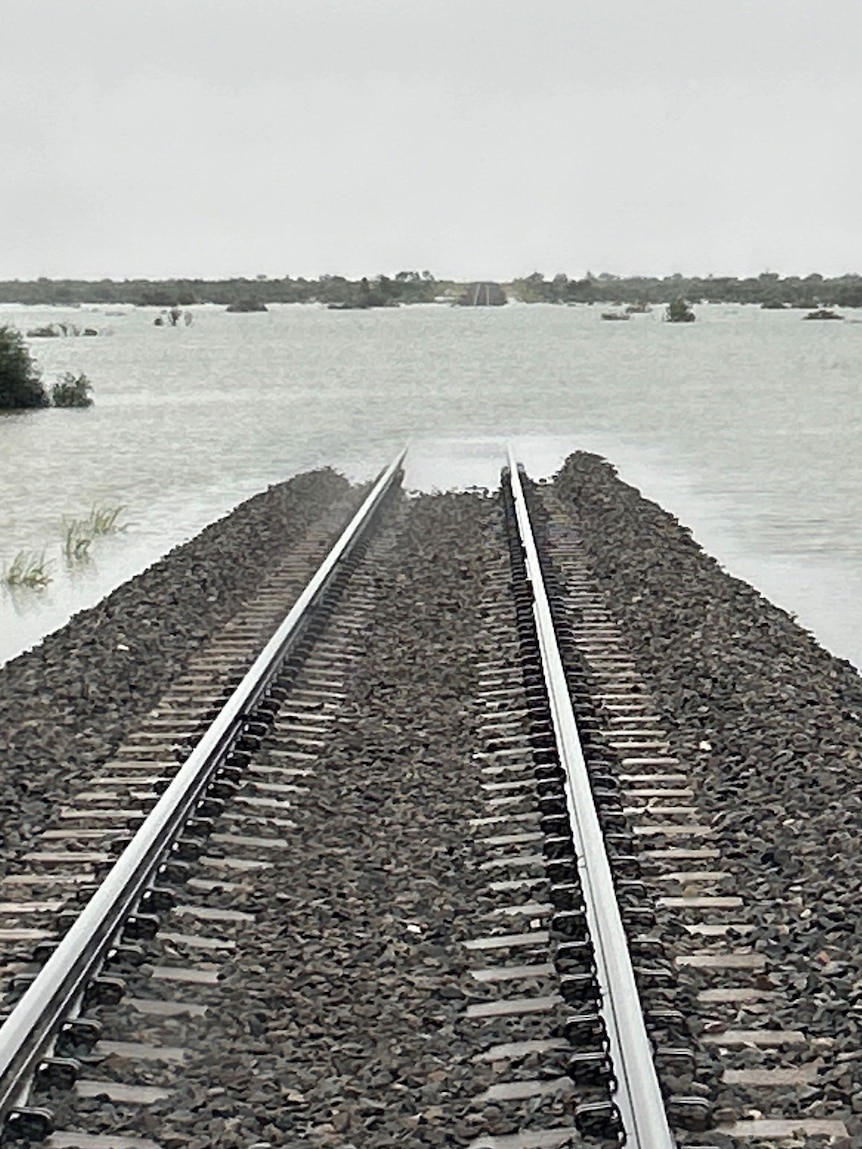More than $200 million will be spent upgrading large sections of the Trans-Australian Railway Line so the vital east-west freight link can withstand one-in-100-year weather events.
It is part of a $1 billion program, which includes $540 million from the Commonwealth announced in this week’s Federal Budget, designed to build more resilience into the national rail network.
The Trans-Australian Railway line was completed in 1917 and converted to a standard gauge line in 1968 to form a continuous rail link between Sydney and Perth.
But that link was severed for 21 days after widespread flooding hit the remote Nullarbor in March.
The flooding also impacted WA’s main road link with the east, the Eyre Highway, which had a flow-on effect on WA supermarket shelves.
The Trans-Australian Railway line was also closed for 24 days in 2022 when floods damaged about 300 kilometres of track near Tarcoola in South Australia.
Upgrades to take years
Wayne Johnson, managing director of the Adelaide-based, federal-government-owned Australian Rail Track Corporation, described the funding as a “shot in the arm” for the rail industry.
“I was in Western Australia around Easter to see the effects on businesses and supermarket shelves and meet with representatives of the Western Australian government and the supply chain over there, and you can imagine their concern with repeated events,” Mr Johnson said.
“We’ve looked at hydrology with these weather patterns across the whole of our 8,500km network and updated a lot of our works.
“That money is going towards additional works to help cope with more extreme weather events.”
The federal funding includes $140 million for culvert upgrades to increase flood resilience from one-in-13-year events in WA, SA and NSW to one-in-100-year events.
An additional $100 million will be spent replacing 47 kilograms per metre rail with 60 kilograms per metre steel to support larger trains between Kalgoorlie-Boulder in WA and Tarcoola in SA.
“You’ve got to bear in mind that a lot of goods run east-west routinely, so we’ve got to mix that work in among those operations,” Mr Johnson said.
“It could take years to get through the totality, but we’ll be starting within the financial year.”
Huge cost to economy
According to the Australasian Railway Association (ARA), the east-west rail corridor is out of service on an average of 40 days every year due to flooding.
With 56 per cent of the nation’s freight being moved by rail, ARA chief executive Caroline Wilkie said strengthening infrastructure to cope with these events was critical.
“Repeated severe weather events, particularly flooding, have had a major impact on rail freight and passenger services and resulted in significant disruptions to our national supply chain,” she said.
“Washouts on the east-west rail line alone cost the economy $320 million in 2022.”
Call for better planning
Western Roads Federation chief executive Cam Dumesny said it took six weeks for WA supermarkets to rebuild stocks after this year’s flood.
“We welcome the rail investment, that’s needed, but we need a freight system,” he said.
“You can’t harden every rail link, you can’t harden every road, we’ve got to look at building up warehouse stocks in our vulnerable regions.
“We convened a meeting (In March) of the impacted states, a number of national agencies were present, but none of the national agencies want to own the problem.
“There doesn’t seem to be any will nationally to deal with interstate freight disruptions that are impacting WA, the NT … it’s an ongoing problem and these weather events are becoming more common.”
Shire of Laverton president Pat Hill has led calls for the sealing of the Great Central Road to be fast-tracked as part of the Outback Way project, which connects WA to Queensland via a 2,700km highway through central Australia.
It is unlikely to be completed this decade, but Mr Dumesny agreed road works should be fast-tracked after the Great Central Road was closed for nearly two months by flooding, re-opening on April 30.
“We need to speed that up … it is the only viable alternative we have when we lose the Eyre Highway, which has been closed by flooding and bushfires this year,” he said.
The call comes as a feasibility study for a proposed rail realignment and intermodal freight facility in Kalgoorlie-Boulder edges closer to completion later this year.




